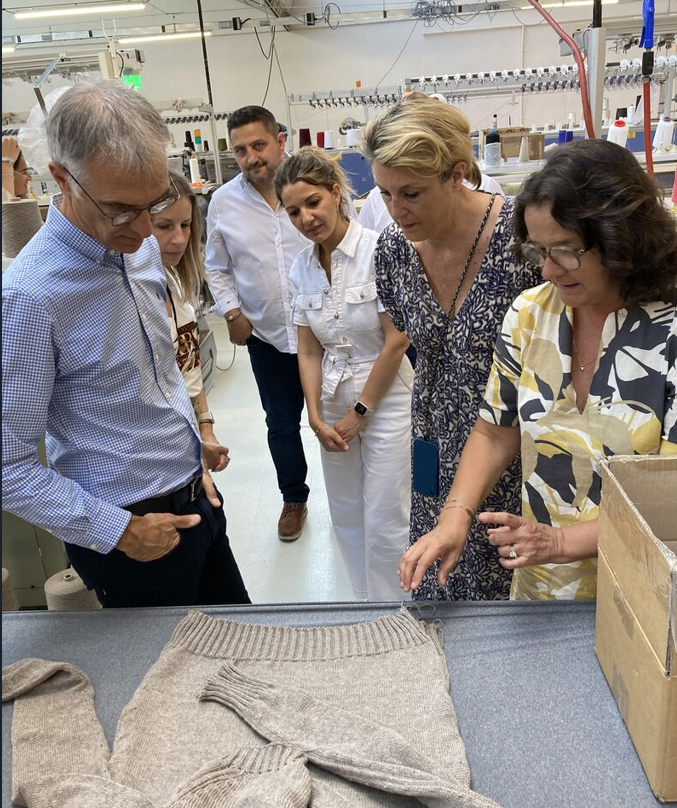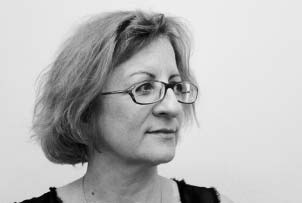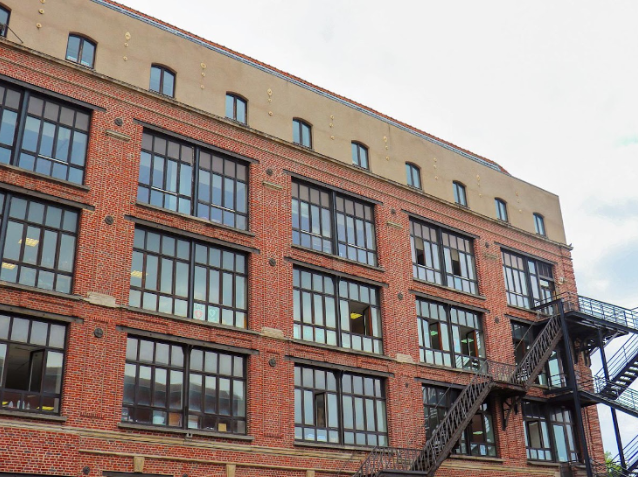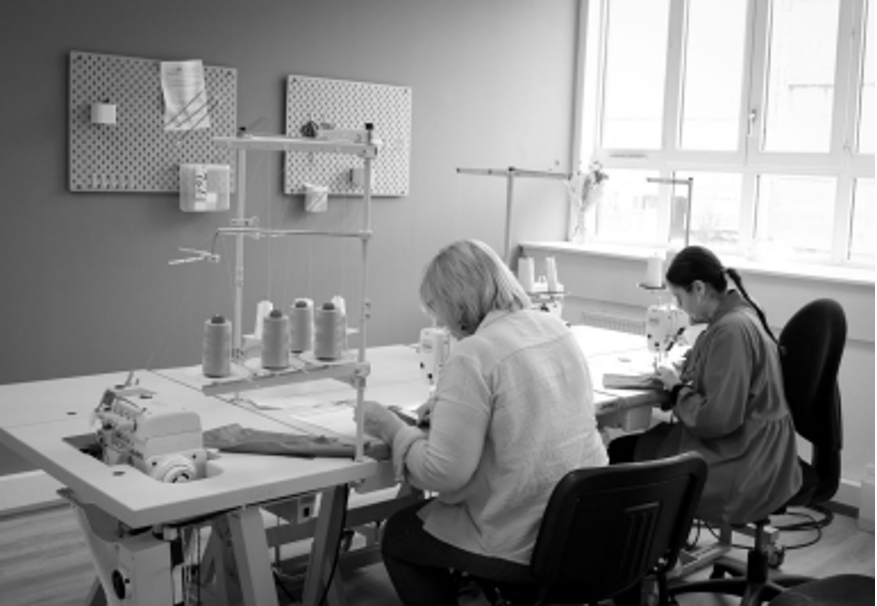In northern France, a new initiative called Plateau Fertile Roubaix is bringing together key players in the fashion, textile, art, design and cultural industries. Powered by the Fashion Green Hub, it is the region's first "third place" project of its kind. The objective is to foster collective work and give greater meaning to the participants' endeavours. It provides an inspired, inspiring, friendly and collaborative space for a diverse range of profiles.
Plateau Fertile Roubaix is one of the first 20 French "third places" to be awarded the "Proximity Manufactures" label, following a call for proposals as part of France's economic recovery plan. It is an exciting project that aims to unite cultural and social entrepreneurs, as well as creative talents from the textile and fashion sectors.
Launched in 2015 by three local entrepreneurs, Fashion Green Hub started as a small association bringing together fashion, textile, art, design and culture professionals. Their mission? To demonstrate that sustainability, innovation and job creation can go hand-in-hand. Roubaix was a very big textile capital around 100 years ago. It was a weaving city with approximately 1,000 factories producing wool, cotton and linen fabrics. The old brick factories with their large chimneys can still be seen throughout the city. The new initiative is housed in one of these historic industrial buildings: "Our goal was to make fashion companies and textile companies meet and work on sustainability because at the time nobody worked on it," explains Annick Jehanne, the president of Fashion Green Hub.
The association worked together for two years. There were around 50 people involved at the time, and they needed a place to prototype, talk and collaborate. So they started a "third place" called Plateau Fertile, named after a location in Roubaix. Over time, the project grew and became a national endeavour. At a certain point, they realized they had 200 companies involved from all around France, so the association then turned into a national organization. Now they accommodate 450 companies as part of the initiative and in November 2022, they opened a second Plateau Fertile location in Paris, and they are planning to open a third one early next year in Lyon.
--
Spotlight: Accessibility to resources
Sustainability to the Green Hub means to use existing fabric first. They have some swatches of existing stock of fabric, stored so that designers can come and see what's in stock. They also have a digital platform where designers can find the same fabrics and they can order them on the platform. The company also trains a lot of other companies. They have a full program of training where companies can work on materials, production, organisation, management, and everything.
--
"We train unemployed people to upcycle manufacturing and afterwards they can go to manufacturers," says Jehanne. "People and young companies can prototype as well. We provide printing machines, rotary machines, and any kind of machine so that they can just sit and do whatever they need to do there. We make companies work together, create a lot of working groups on different subjects, do small events, rent spaces and do a lot of different activities.."
--
What sets Fashion Green Hub apart is its holistic, systemic approach. Rather than focusing on one part of the supply chain, the initiative brings together diverse stakeholders - from designers and manufacturers to distributors and educators
--
"From the beginning, we thought we had to work on it on the whole value chain, not only distributors, manufacturers or designers, to put everyone together so that people could move, find solutions and do more projects together as well."
This collaborative ethos has paid dividends. Over 2,200 companies have forged new partnerships and synergies through Fashion Green Hub's initiatives. The organisation has also proven that sustainability can be a driver of innovation and job creation, not just a cost centre.
"We showed that sustainability was creating jobs. This is what we wanted to show in this area, that working on the subject was innovative because there are a lot of startups working on artificial intelligence or robotics, manufacturing, and very innovative things" says Jehanne. "So we wanted to show that sustainability, innovation and jobs were connected and we could manage to create activities and jobs in the process of sustainability"
Looking ahead, Fashion Green Hub has ambitious plans to expand its Plateau Fertile model to other French cities, with a second hub already opened in Paris and a third planned for Lyon. However, the organisation is taking a measured, community-focused approach, prioritising trust and collaboration over rapid growth.
--
Spotlight: Nurturing trust
 A researcher from the Catholic University in Lille did his research thesis on innovation for four years with the company in the old house in the north. He talked to a lot of members and partners and he concluded that their strongest quality is trust. People trust each other, talk, do projects and innovate. When someone comes into the association, they know they can trust others, nobody's going to take advantage of them. There is respect and trust and that's quite specific.
A researcher from the Catholic University in Lille did his research thesis on innovation for four years with the company in the old house in the north. He talked to a lot of members and partners and he concluded that their strongest quality is trust. People trust each other, talk, do projects and innovate. When someone comes into the association, they know they can trust others, nobody's going to take advantage of them. There is respect and trust and that's quite specific.
--
 "In the future, a lot of cities actually would like to have a Plateau Fertile in France, so we are in contact with them. We never do a Plateau Fertile if we don't already have a big enough community in that area. It depends as well on the financial conditions if we can build something which will be working financially. We are quite slow, we don't want to rush. We are a small team, about 20 people only. So we go step by step, we take time, and we talk to all the ecosystem actors before we launch anything." Jehanne explains. " It's a slow process, but that's not a problem. It comes when it's ready. We are not a financial company. So we have no shareholders to please. We do whatever we decide to do." Through its unique blend of practical support, cross-pollination and unwavering commitment to sustainability, Fashion Green Hub is proving that the textile industry can reinvent itself for the 21st century. It's a model that could inspire sustainable innovation far beyond the borders of France.
"In the future, a lot of cities actually would like to have a Plateau Fertile in France, so we are in contact with them. We never do a Plateau Fertile if we don't already have a big enough community in that area. It depends as well on the financial conditions if we can build something which will be working financially. We are quite slow, we don't want to rush. We are a small team, about 20 people only. So we go step by step, we take time, and we talk to all the ecosystem actors before we launch anything." Jehanne explains. " It's a slow process, but that's not a problem. It comes when it's ready. We are not a financial company. So we have no shareholders to please. We do whatever we decide to do." Through its unique blend of practical support, cross-pollination and unwavering commitment to sustainability, Fashion Green Hub is proving that the textile industry can reinvent itself for the 21st century. It's a model that could inspire sustainable innovation far beyond the borders of France.
--
From the collection of articles on Creative Hubs by the European Creative Hubs network










 A researcher from the Catholic University in Lille did his research thesis on innovation for four years with the company in the old house in the north. He talked to a lot of members and partners and he concluded that their strongest quality is trust. People trust each other, talk, do projects and innovate. When someone comes into the association, they know they can trust others, nobody's going to take advantage of them. There is respect and trust and that's quite specific.
A researcher from the Catholic University in Lille did his research thesis on innovation for four years with the company in the old house in the north. He talked to a lot of members and partners and he concluded that their strongest quality is trust. People trust each other, talk, do projects and innovate. When someone comes into the association, they know they can trust others, nobody's going to take advantage of them. There is respect and trust and that's quite specific. "In the future, a lot of cities actually would like to have a Plateau Fertile in France, so we are in contact with them. We never do a Plateau Fertile if we don't already have a big enough community in that area. It depends as well on the financial conditions if we can build something which will be working financially. We are quite slow, we don't want to rush. We are a small team, about 20 people only. So we go step by step, we take time, and we talk to all the ecosystem actors before we launch anything." Jehanne explains. " It's a slow process, but that's not a problem. It comes when it's ready. We are not a financial company. So we have no shareholders to please. We do whatever we decide to do." Through its unique blend of practical support, cross-pollination and unwavering commitment to sustainability, Fashion Green Hub is proving that the textile industry can reinvent itself for the 21st century. It's a model that could inspire sustainable innovation far beyond the borders of France.
"In the future, a lot of cities actually would like to have a Plateau Fertile in France, so we are in contact with them. We never do a Plateau Fertile if we don't already have a big enough community in that area. It depends as well on the financial conditions if we can build something which will be working financially. We are quite slow, we don't want to rush. We are a small team, about 20 people only. So we go step by step, we take time, and we talk to all the ecosystem actors before we launch anything." Jehanne explains. " It's a slow process, but that's not a problem. It comes when it's ready. We are not a financial company. So we have no shareholders to please. We do whatever we decide to do." Through its unique blend of practical support, cross-pollination and unwavering commitment to sustainability, Fashion Green Hub is proving that the textile industry can reinvent itself for the 21st century. It's a model that could inspire sustainable innovation far beyond the borders of France.